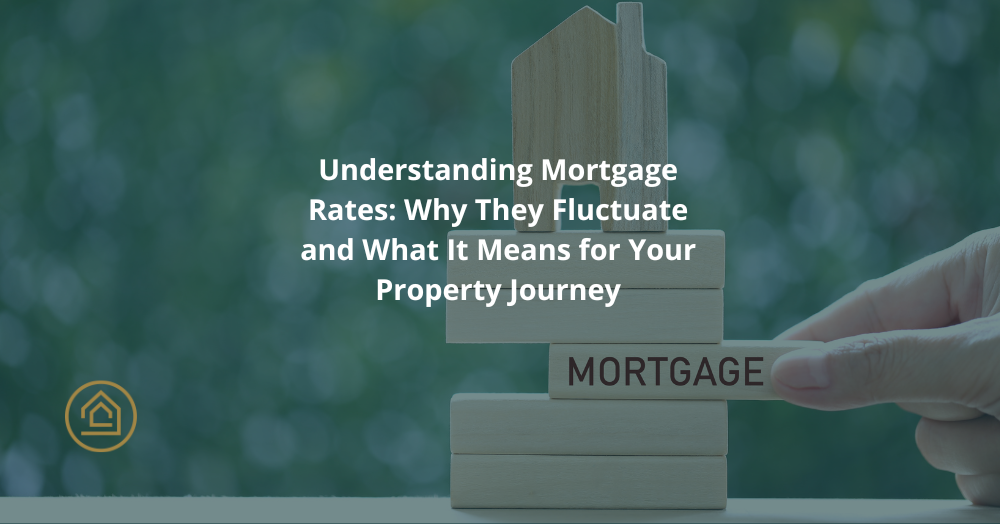
Understanding Mortgage Rates: Why They Fluctuate and What It Means for Your Property Journey
For many, a mortgage is the largest financial commitment they will ever make. The interest rate attached to that mortgage significantly impacts monthly repayments and, ultimately, the overall cost of borrowing. So, what drives these rates up and down, and how can you make sense of the movements?
The Bank of England Base Rate: The Foundation
At the heart of the UK's financial system is the Bank of England (BoE) Base Rate. This is the interest rate at which commercial banks can borrow money from the BoE. When the BoE raises or lowers this rate, it typically has a ripple effect across the entire economy, including mortgage rates. The BoE uses the Base Rate as a tool to control inflation and stimulate or cool down economic activity. If inflation is high, the BoE might increase the Base Rate to make borrowing more expensive, thereby reducing spending. Conversely, if the economy needs a boost, they might lower it.
Beyond the Base Rate: The Role of Swap Rates and SONIA
While the Base Rate is fundamental, it's not the only player. For fixed-rate mortgages, lenders primarily look at 'swap rates'. A swap rate is essentially the cost for banks to 'swap' a variable interest rate for a fixed one over a set period (e.g., two, five, or ten years). These rates are influenced by market expectations of future Bank of England Base Rate movements, inflation forecasts, and the general economic outlook. If the market anticipates the Base Rate will rise in the future, swap rates for longer-term fixed mortgages will typically increase, even if the current Base Rate remains unchanged.
For variable-rate mortgages, particularly those linked to a benchmark, you might hear the term SONIA (Sterling Overnight Index Average). SONIA is a 'risk-free' overnight interest rate benchmark, reflecting the average rate that banks pay to borrow sterling overnight from other financial institutions. It replaced LIBOR (London Interbank Offered Rate) as the primary benchmark for sterling interest rate products. While the BoE Base Rate directly influences SONIA, SONIA itself is a market-driven rate that can fluctuate daily based on the supply and demand for overnight sterling funding among banks. Many tracker mortgages and some variable-rate products are now linked to SONIA, meaning their rates will move in line with this benchmark.
Other Factors Influencing Mortgage Rates
Several other elements contribute to the mortgage rate you're offered:
- Lender's Funding Costs: Banks need to fund the mortgages they offer. This comes from various sources, including customer deposits and wholesale money markets. The cost of this funding impacts the rates they can offer.
- Competition: A competitive mortgage market can drive rates down as lenders vie for business.
- Risk Assessment: Lenders assess the risk of lending to you, considering factors like your credit score, loan-to-value (LTV) ratio, and income stability. A lower risk profile often leads to better rates.
- Economic Outlook: Broader economic stability, employment figures, and consumer confidence all play a part in how lenders price their products.
What Does This Mean for You?
Understanding these dynamics empowers you to make more informed decisions. When considering a mortgage, whether you're a first-time buyer or looking to remortgage, it's wise to:
- Monitor Economic News: Keep an eye on announcements from the Bank of England and broader economic indicators.
- Consider Your Risk Tolerance: Are you comfortable with potential fluctuations of a variable rate, or do you prefer the stability of a fixed rate, even if it might be slightly higher initially?
- Seek Expert Advice: A good mortgage adviser can help you navigate the complexities, explaining current market conditions and finding a product that aligns with your financial goals.
At our core, we believe in guiding you with clarity and confidence through every step of your property journey. Understanding mortgage rates is a significant part of that. We're here to provide expert advice, delivered with care, ensuring you feel supported and informed.
Curious about what your home is worth today? Try our instant valuation tool on the link below for a quick, no-obligation estimate.
